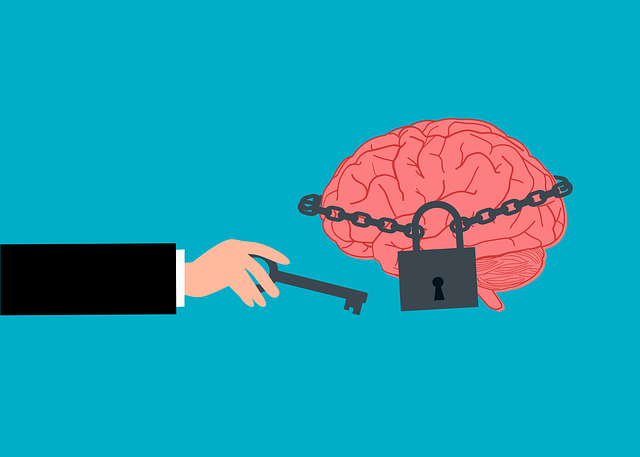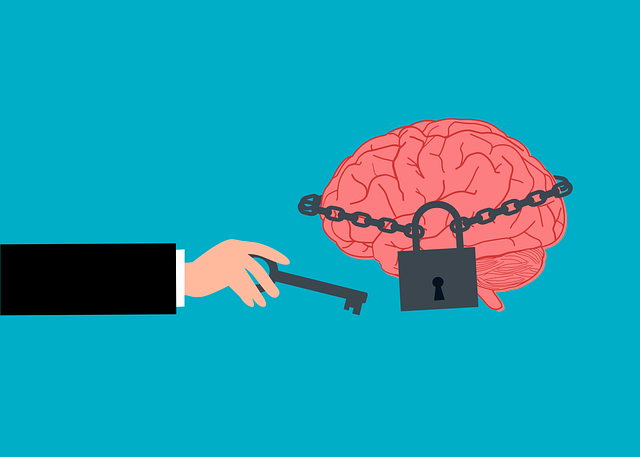Understanding mood regulation is key to managing stress effectively in today's fast-paced world. Therapies like Cognitive Behavioral Therapy (CBT) target negative thought patterns, empowering individuals to adopt healthier coping strategies and improve emotional well-being. Mindfulness practices, rooted in ancient concepts, regulate mood through present-moment awareness and relaxation responses. Proactive lifestyle changes, including exercise, sleep, and mindfulness, along with keeping a mental wellness journal, promote long-term mental wellness and resilience, enhancing stress management and mood stability.
Mood regulation is a vital skill in managing stress, fostering resilience, and enhancing overall well-being. In today’s fast-paced world, understanding and controlling one’s emotional state is more crucial than ever. This article explores effective strategies to navigate and optimize mood regulation, from evidence-based therapies like Cognitive Behavioral Therapy (CBT) for stress reduction to mindfulness practices calming the mind and body. Discover lifestyle changes that promote long-term emotional stability.
- Understanding Mood Regulation and its Significance in Stress Management
- Cognitive Behavioral Therapy (CBT): A Powerful Tool for Stress Reduction
- Mindfulness Practices to Calm the Mind and Body
- Lifestyle Changes for Long-Term Mood Stability and Resilience
Understanding Mood Regulation and its Significance in Stress Management

Understanding Mood Regulation is a pivotal step in effectively managing stress. It involves recognizing and controlling one’s emotional state to foster a sense of calm and resilience. In today’s fast-paced world, where stress has become an all too common companion, mastering mood regulation strategies becomes essential for maintaining mental well-being. By learning to navigate our emotions, we can transform stressful situations from overwhelming challenges into manageable obstacles.
This process is closely tied to the development of coping skills and positive thinking. Therapy for Stress Management often incorporates techniques to enhance mood management, encouraging individuals to embrace healthy coping mechanisms. Such strategies empower folks to confront stress head-on, promoting a more balanced and peaceful mind. Through the acquisition of these tools, one can navigate life’s twists and turns with greater equanimity, ensuring a more fulfilling and less stressful journey.
Cognitive Behavioral Therapy (CBT): A Powerful Tool for Stress Reduction

Cognitive Behavioral Therapy (CBT) is a highly effective therapy for stress management that focuses on identifying and changing negative thought patterns and behaviors. By challenging and modifying unhelpful cognitive processes, CBT helps individuals develop healthier coping strategies to manage stress and improve their overall emotional well-being. This therapeutic approach has been extensively researched and proven successful in treating various mental health conditions, including depression and anxiety disorders.
Through CBT, clients learn to recognize and challenge distorted thinking, replace negative thoughts with more realistic and positive ones, and engage in behaviors that promote emotional healing processes. It equips individuals with valuable tools for self-regulation, enabling them to navigate life’s challenges with greater resilience and flexibility. The therapy encourages active participation, providing practical techniques for managing stress effectively in daily life, thereby enhancing mental health awareness and overall life satisfaction.
Mindfulness Practices to Calm the Mind and Body

In today’s fast-paced world, where stress has become an ever-present companion, mindfulness practices offer a powerful tool for calming both the mind and body. This ancient technique, rooted in the concept of Mind Over Matter, involves focusing one’s awareness on the present moment, observing thoughts and sensations without judgment. By cultivating mindfulness, individuals can learn to detach from stressful situations, reducing their emotional impact. Practices such as meditation, deep breathing exercises, and mindful movement like yoga or tai chi help to regulate mood by promoting relaxation responses in the body, thereby effectively serving as therapy for stress management.
Joining Stress Management Workshops organized by various groups or organizations can also be immensely beneficial. These workshops often teach practical mindfulness techniques tailored for stress reduction. Through guided meditations, participants learn to navigate the bustling landscape of their minds during stressful times. By regularly incorporating these practices into daily routines, individuals can foster resilience against stress, leading to improved overall well-being and a more balanced state of mind.
Lifestyle Changes for Long-Term Mood Stability and Resilience

Adopting a proactive approach to mood regulation involves making lifestyle changes that foster long-term mental wellness and resilience. This journey begins with recognizing the impact of daily habits on our emotional state. Simple yet powerful strategies, such as regular exercise, adequate sleep, and mindfulness practices, can significantly enhance our ability to manage stress and maintain stable moods. Engaging in these activities consistently provides a solid foundation for supporting mental health over time.
One effective tool to strengthen self-esteem and overall resilience is keeping a mental wellness journal. This practice encourages individuals to reflect on their thoughts, emotions, and experiences, fostering a deeper understanding of personal triggers and coping mechanisms. By documenting feelings and progress, one can identify patterns, track improvements, and gain valuable insights that support both therapy for stress management and self-esteem improvement.
In conclusion, mood regulation strategies play a pivotal role in managing stress. Through understanding the importance of maintaining emotional stability, this article has explored effective approaches such as Cognitive Behavioral Therapy (CBT) for reducing stress, mindfulness practices for calming the mind and body, and lifestyle changes for fostering long-term mood stability. By integrating these strategies into daily routines, individuals can enhance their resilience and lead more balanced lives, thereby improving overall well-being and quality of life. Effective therapy for stress management is within reach, empowering folks to navigate life’s challenges with greater ease.














